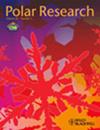阿拉斯加白鲸委员会——一种独特的共同管理模式
IF 1.3
4区 地球科学
Q3 ECOLOGY
引用次数: 2
摘要
阿拉斯加白鲸委员会(ABWC)成立于1988年,旨在与国家海洋渔业局(NMFS)合作,保护白鲸,并管理阿拉斯加西部和北部的白鲸自给狩猎。当ABWC成立时,阿拉斯加没有持续资助的白鲸研究或管理计划,共同管理是一个新概念。ABWC汇集了白鲸狩猎社区的代表;联邦、州、部落和地方政府;白鲸研究人员制定并实施一项管理白鲸的计划。在NMFS和其他机构的资助下,ABWC收集了知情管理决策所需的数据,包括以下数据:收获数据;对布里斯托尔湾以及白令海和楚科奇海东部白鲸的空中调查;白鲸追踪研究,包括训练猎人安装发射器;白鲸种群身份的开创性遗传学研究,促进了2000多个白鲸皮肤样本的收集;以及一项基于遗传学的标记捕获研究,以估计布里斯托尔湾白鲸的丰度并验证航空调查的估计。ABWC目前正在科策布湾和白令海东部进行区域管理规划。它产生了科学有效、当地接受和成本效益高的结果,是当土著猎人、科学家和管理机构相互尊重、倾听并共同努力时可以取得的成就的一个例子。然而,目前NMFS的共同管理资金流程从根本上改变了NMFS和ABWC之间的关系,NMFS现在更像是一个资金机构,而不是一个合作伙伴。本文章由计算机程序翻译,如有差异,请以英文原文为准。
Alaska Beluga Whale Committee—a unique model of co-management
The Alaska Beluga Whale Committe (ABWC) was formed in 1988 to conserve beluga whales (Delphinapterus leucas) and manage beluga subsistence hunting in western and northern Alaska in cooperation with the National Marine Fisheries Service (NMFS). When the ABWC was formed, there was no consistently funded research or management programme for belugas in Alaska, and co-management was a new concept. The ABWC brought together representatives from beluga hunting communities; federal, state, tribal and local governments; and beluga researchers to develop and implement a programme to manage belugas. With funding from NMFS and others, the ABWC has collected data necessary for informed management decisions including the following: harvest data; aerial surveys of belugas in Bristol Bay and the eastern Bering and Chukchi seas; beluga tracking studies, including training hunters to attach transmitters; a pioneering genetics study of beluga stock identity that has facilitated collection of >2000 beluga skin samples; and a genetics-based mark–recapture study to estimate beluga abundance in Bristol Bay and validate aerial survey estimates. The ABWC is currently engaged in regional management planning in Kotzebue Sound and the eastern Bering Sea. It produces results that are scientifically valid, locally accepted and cost-effective and is an example of what can be achieved when Native hunters, scientists and managing agencies respect and listen to one another and work together. However, the current NMFS co-management funding process has fundamentally altered the relationship between NMFS and ABWC, with NMFS now acting more like a funding agency than a partner.
求助全文
通过发布文献求助,成功后即可免费获取论文全文。
去求助
来源期刊

Polar Research
地学-地球科学综合
CiteScore
3.20
自引率
5.30%
发文量
22
审稿时长
>12 weeks
期刊介绍:
Since 1982, Polar Research has been the international, peer-reviewed journal of the Norwegian Polar Institute, Norway''s central institution for research, environmental monitoring and mapping of the polar regions. Aiming to promote the exchange of scientific knowledge about the Arctic and Antarctic across disciplinary boundaries, Polar Research serves an international community of researchers and managers. As an open-access journal, Polar Research makes its contents freely available to the general public.
Original primary research papers comprise the mainstay of Polar Research. Review articles, brief research notes, letters to the editor and book reviews are also included. Special issues are published from time to time.
The scope of Polar Research encompasses research in all scientific disciplines relevant to the polar regions. These include, but are not limited to, the subfields of biology, ecology, geology, oceanography, glaciology and atmospheric science. Submissions from the social sciences and those focusing on polar management and policy issues are welcome. Contributions about Antarctica are particularly encouraged.
 求助内容:
求助内容: 应助结果提醒方式:
应助结果提醒方式:


